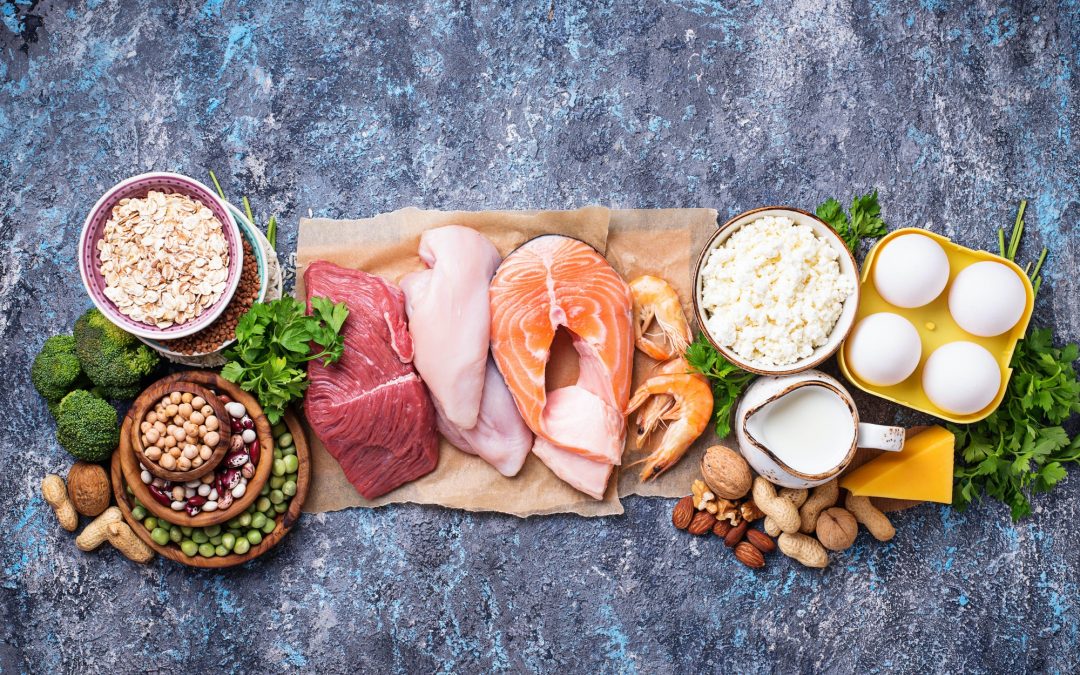Are you trying to lower your blood pressure through dieting? Does it make sense to eat protein-rich foods for better blood pressure?
More people than you know have made it a habit to eat the same things over and over again. Since life can get pretty busy, it makes sense that people want to simplify areas of their life – and it’s not hard to do with food. However, a new study available in Hypertension suggests that introducing some new protein varieties to your meals can go a long way.
Researchers pulled existing data from more than 12,000 participants in the China Health and Nutrition Survey. They wanted to analyze the connection between high blood pressure (hypertension) and protein variety and quantity. Participants were 41 years of age, on average.
The Study
 Study researchers measured the participants’ protein intake by looking at three consecutive days of eating. They then scored each round based on the number of varieties consumed. These protein varieties included legumes, eggs, fish, refined grains, whole grains, poultry, and processed and unprocessed red meat.
Study researchers measured the participants’ protein intake by looking at three consecutive days of eating. They then scored each round based on the number of varieties consumed. These protein varieties included legumes, eggs, fish, refined grains, whole grains, poultry, and processed and unprocessed red meat.
According to the results, John Higgins, MD, explains that “those eating the greatest variety of protein had the lowest blood pressure.” Higgins is a sports cardiologist with McGovern Medical School at the UT Health Science Center in Houston.
Moreover, the study suggests that eating the greatest variety of protein is more important than the amount. To illustrate, participants who ate the least and the most amount of protein had the greatest risk of developing hypertension. In contrast, those who ate the greatest variety were 66% less likely to develop high blood pressure.
Study Conclusions
According to Xianhui Qin, MD, study author, “the heart health message is that consuming a balanced diet with proteins from various different sources, rather than focusing on a single source of dietary protein, may help to prevent the development of high blood pressure.”
In other words, it’s time to try out different proteins instead of just sticking to the ones you know. If you need help, Dr. Higgins recommends focusing on your daily consumption to get started:
“The American Heart Association recommends eating no more than about 5.5 ounces of protein daily, about one to two servings, from healthy sources such as plants, seafood, low-fat or fat-free dairy products, and some lean meats and poultry,” says Higgins. “The best proteins are lean proteins including beans, soy or tofu, fish, skinless chicken, very lean meat, and low-fat dairy products. Avoid proteins that say ‘hydrogenated’ on [the] label or contain high levels of trans fats or saturated fats.”
The Outlook
 As you work to improve your heart health, look for ways to incorporate new proteins into your diet. In addition, you can give your health an extra boost by trying supplements like L-arginine Plus.
As you work to improve your heart health, look for ways to incorporate new proteins into your diet. In addition, you can give your health an extra boost by trying supplements like L-arginine Plus.
It contains ingredients that can effectively promote your circulation, blood pressure health, cholesterol health, and more. Give your heart the support it deserves by eating a variety of proteins and taking L-arginine Plus.

